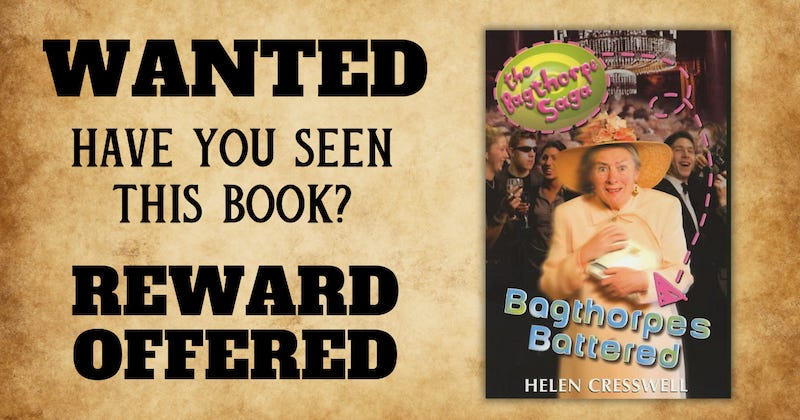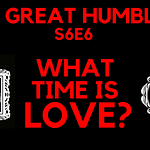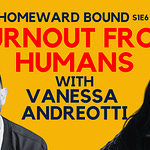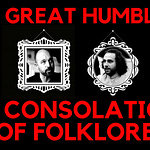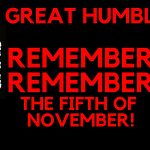This is the episode where we finally left Skype, which we’ve for some reason been using to record these conversations for four and a half series. Switching off the lights as we go, Ed wonders about other examples of old systems and technologies that are still in use, such as Windows Submarine.
Dougald reports back on his trip to Gothenburg – and makes an appeal for help in locating a copy of Helen Cresswell’s Bagthorpes Battered, the tenth and final instalment in her saga about the terrible (and hilarious) Bagthorpe family. If you have a copy gathering dust on your shelves or boxed away in the attic, a reward is offered, and you’d also make an eight-year-old boy and his dad very happy.
Picking up on last episode’s discussion of populism, Dougald brings in a PhD thesis by the Brazilian scholar Neto Leão, ‘Vernacular Forms of Living: Thinking After Ivan Illich’.
‘To hell with sustainability!’ Neto declares, echoing Illich's pronouncement, ‘To hell with good intentions!’
Among the framings that Neto draws from Illich is his emphasis on the necessity of setting social limits: before we even get to ecological limits, our capacity to live well together requires us to make collective choices that include saying no to certain possibilities, technologies and forms of ownership. ‘Natural thresholds are generally crossed after social limits are breached,’ he writes.
It’s interesting to set this alongside Kate Raworth’s influential Doughnut Economics, which maps ‘planetary boundaries’ together with ‘social boundaries’.
The difference is that, in Raworth’s mapping, the social boundaries are presented in terms of a minimum of basic needs, rather than a limit that it is unwise to exceed.
Neto also draws attention to ‘Peace vs Development’, a talk which Illich gave in Japan in 1980, where he distinguishes the pax populi (people’s peace) from the pax economicum, the enforced peace from above that results from a ‘balance of powers’, as represented by globalisation. Illich presents the pax economicum as the successor to the pax romana of the Roman Empire.
There are clues here for the search for good forms of ‘populism’ that we spoke about in the previous episode – while Neto develops Illich’s thoughts by suggesting that the pax ecologica is now offered as the successor to the pax economicum.
The contrast between the pax ecologica and the pax populi is reflected in the contrast between what Neto calls the ‘high agreements’ (the kind made at COP meetings and similar summits) and the ‘low agreements’, made at scales much closer to the ground. The low agreements may look too small to be worth taking seriously, yet it is at these scales that choices about social limits become possible, whereas these are unthinkable from the perspective of high-level sustainability discussions.
Neto fleshes out his picture of the ‘low agreements’ with fieldwork from an island in Sao Paulo province, Brazil, where the villagers have made collective decisions about limiting the amount of electricity and the uses to which they are willing to put it within their community.
Thinking about other examples of ‘low agreements’, Dougald remembers Peter N Limberg’s recent post about ‘Unscreening’, the 6.30pm power-down ritual that he and his wife have created, where they put their phones away in a box, beautifully made for the purpose. (There’s a connection here, too, to the larger conversation about ‘Sowing Anachronism’ that Peco and Ruth Gaskovski have been hosting over at the School of the Unconformed.)
The story of the community in Brazil reminds Ed of his experiences visiting the Isle of Eigg and the journey of community-owned electricity that the residents have been on.
Ed talks about some work he’s been doing with the Forward Institute and a discussion around what humility in leadership looks like, where they found themselves talking about the terrible counter-example of the Post Office Horizon scandal in the UK and the horrific lack of humility that characterised the treatment of the subpostmasters by those on high.
Dougald wonders if part of this story is about the disastrous consequences of treating systemic reality as all that is real. This calls to mind a passage he was recently sent from the philosopher Giuseppe Longo, ending with the line: ‘The abundance of the unpredictable in the world tells us the poverty of the calculable fragment of the world.’
This leads Ed to a book he’s been reading, William Blake vs the World by John Higgs (author of the amazing book on the KLF that spent two episodes talking about) and a line that he quotes from the poet Paul Éluard: ‘There is certainly another world, but it is in this one.’
And from here we arrive at The Fête of Britain, the newly announced four-day event organised by the Hard Art collective. This is the bubbling into view of something that’s been brewing for a long time, a collective including (friend of this podcast™) Brian Eno, Es Devlin, Clare Farrell of XR, Jeremy Deller and our very own Ed Gillespie.
Dougald talks about the connection between the idea of ‘Hard Art’ and the argument that he’s been making since the early days of Dark Mountain, that culture is not ‘a soft surface layer over life’s harder material and economic realities’, but a tectonic force that goes all the way down. ‘You can’t get aback of culture.’
As the episode comes to a close, we return to the pax populi and talk about Jonathan Rowson’s recent series on peace and the post in which he quotes the Star Wars character Jyn Erso:
They’ve no idea we’re coming. They’ve no reason to expect us. If we can make it to the ground, we’ll take the next chance, and the next, on and on until we win, or the chances are spent.
Jonathan connects this to the line attributed to Francis of Assisi:
If at first you do what is necessary, and then do what is possible, soon you find you are achieving the impossible.
And Ed links this to the words of Arthur Ashe:
Start where you are, use what you have, do what you can.
As well as recording on something other than Skype, we finally took the plunge and moved this podcast to Substack. We hope this will allow us to widen the weave of relationships that has come into being around our conversations. Big thanks to our producer David Benjamin Blower.
Ed & Dougald




